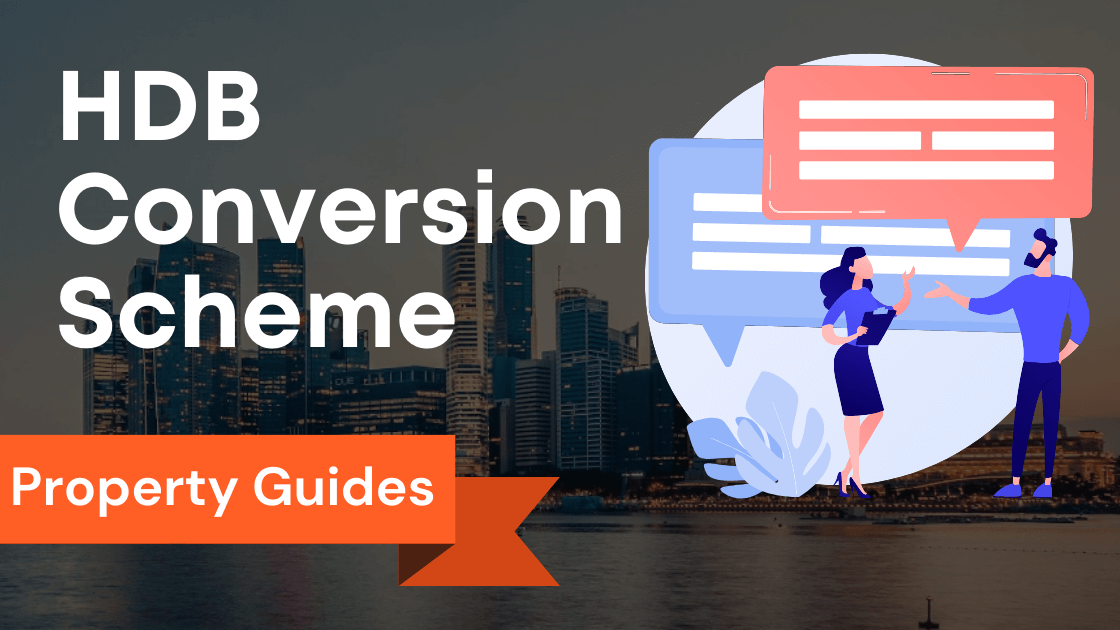Utilities: Managing Recurring Home Costs in Singapore
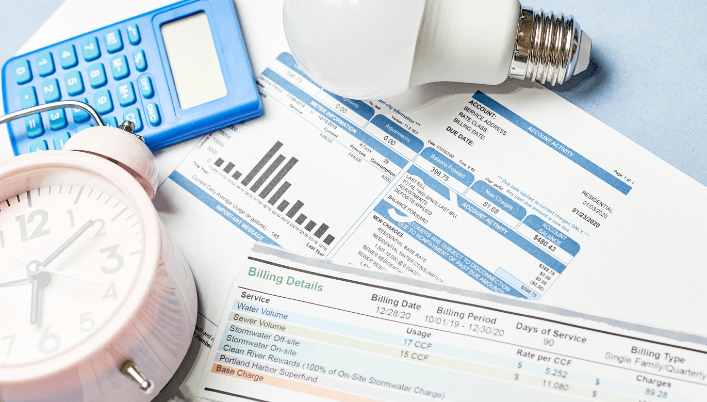
Recurring Home Costs – When purchasing their first home, many people are surprised by the recurring costs of homeownership.
The costs vary depending on factors such as the location, property size, and the age of the home.
Expenses include mortgage payments, property taxes, insurance premiums, and maintenance costs.
In 2021, the costs of homeownership in the U.S. can range anywhere from a few hundred to several thousand dollars per month.
For example, property taxes may average around 1-2% of the home’s value, and insurance premiums can also vary depending on factors like location and the coverage you choose.
Additionally, homebuyers may need to set aside funds for other expenses, such as real estate agent fees, closing costs, and potential repairs.
Some expenses, like property taxes and mortgage interest, may offer tax deductions that can help offset costs.
Homeowners should also factor in utilities, HOA fees (if applicable), garbage collection, and potential mortgage-related expenses such as PMI (Private Mortgage Insurance), PITI (Principal, Interest, Taxes, and Insurance), and an escrow account for these payments.
Ultimately, how much you can expect to pay in recurring costs will depend on your specific circumstances and where you are located.
When it comes to managing your pay monthly expenses in Singapore, utilities play a crucial role.
From electricity and water to gas, these recurring costs can significantly impact your overall budget.
In this article, we will explore the different aspects of utilities and provide some tips on how to effectively manage these expenses.
Electricity
Electricity bills are one of the major recurring expenses for every household.
To keep your electricity costs under control, consider the following:
- Switch to Energy-Efficient Appliances: Investing in energy-efficient appliances can help reduce your monthly electricity consumption and ultimately lower your bills.
- Practice Energy-Saving Habits: Simple actions like turning off lights when not in use, using natural light during the day, and unplugging electronics when they are fully charged can make a significant difference in your electricity bill.
Water
Water bills are another recurring expense that can add up over time.
To manage your water costs effectively, follow these tips:
- Fix Leaks Promptly: Leaky faucets and pipes can waste a significant amount of water and increase your bill. Address any leaks immediately to avoid unnecessary expenses.
- Install Water-Saving Devices: Installing low-flow showerheads, faucets, and toilets can help conserve water and reduce your monthly usage.
Gas
For households that use gas for cooking or heating, managing gas expenses is essential.
Here are a few strategies to consider:
- Compare Utility Providers: Take the time to compare different gas providers and choose the one that offers competitive rates.
- Ensure Proper Insulation: Properly insulating your home can help retain heat, reducing the need for excessive gas consumption during colder months.
By implementing these strategies and being mindful of your utility usage, you can effectively manage and control your recurring home costs.
Keep in mind that expenses can vary from month to month, so tracking your spending and understanding the largest portions of your utility bills is key to maintaining a healthy financial future.
http://www.youtube.com/watch?v=lwok44tM6AY
Remember, by adopting energy-saving habits and making conscious choices regarding your utility usage, you can not only save money but also contribute to a greener and more sustainable environment.
Key Takeaways
- Manage Electricity Costs: Invest in energy-efficient appliances and practice energy-saving habits to reduce electricity bills.
- Water Bill Savings: Fix leaks promptly and install water-saving devices to manage water costs effectively.
- Gas Expense Control: Compare gas providers and ensure proper home insulation to save on gas expenses.
- Budget Variability: Be aware that utility expenses can vary from month to month, so tracking your spending is crucial.
- Eco-Friendly Practices: Adopt energy-saving habits to save money and contribute to a greener environment.
- Understanding Annual Value: Know the annual value (AV) as it directly affects property tax costs for Singapore Citizens.
- Progressive Property Tax Rates: Understand the progressive property tax rate system based on AV to plan your budget.
- Tax Rebates and Exemptions: Be aware of available property tax rebates and exemptions to manage costs effectively.
- Home Loan Interest Types: Familiarize yourself with different home loan types, including fixed-rate and floating rate options.
- Managing Home Loan Interest: Explore strategies to reduce home loan interest payments, such as refinancing and additional payments.
Property Tax: Understanding and Managing Recurring Home Costs in Singapore
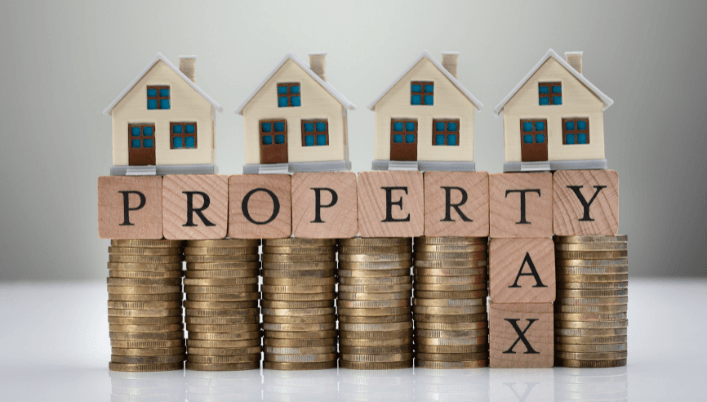
When it comes to managing your monthly expenses in Singapore, property tax is an important aspect that should not be overlooked.
In this article, we will explore the different components of property tax, including annual value, progressive property tax rates, as well as rebates and exemptions, to help you effectively manage these recurring expenses.
Annual Value (AV)
The annual value (AV) is a key factor in determining the amount of property tax you need to pay.
It is the estimated gross annual rent that you can expect to receive if you were to rent out your property.
The AV is calculated based on factors such as property location, size, condition, and market rental value.
Property tax is calculated by applying the relevant property tax rate to the AV of your property.
As a homeowner, it is important to understand the AV of your property as it directly affects your property tax costs.
Singapore Citizens can also enjoy certain rebates and exemptions based on the AV of their property.
Progressive Property Tax Rates
Singapore adopts a progressive property tax rate system, where properties with higher AVs are taxed at higher rates.
This means that the higher the AV of your property, the higher the property tax rate you will be subjected to.
It is crucial to be aware of the progressive property tax rates to accurately estimate your monthly expenses.
By understanding the progressive property tax rates, you can plan your budget accordingly and ensure that you allocate sufficient funds for your property tax payments.
Property Tax Rebates and Exemptions
To alleviate the financial burden of property tax, the Singapore government provides various rebates and exemptions.
These are aimed at supporting different groups of homeowners and reducing their property tax costs.
Rebates can be offered during specific periods or for certain circumstances, such as economic downturns or for families with lower income.
Exemptions, on the other hand, are available for specific types of properties, such as HDB flats and government-owned buildings.
It is crucial to stay updated with the latest property tax rebates and exemptions that you may be eligible for.
By taking advantage of these benefits, you can effectively manage your recurring home costs and ensure a healthier financial future.
http://www.youtube.com/watch?v=8FrnnFw_vWM
In conclusion, managing recurring home costs in Singapore, such as property tax, requires a good understanding of the different components involved.
By being aware of the annual value, progressive property tax rates, and available rebates and exemptions, you can effectively budget and plan your expenses.
Keeping track of these costs is key to maintaining a healthy financial future as a homeowner in Singapore.
Home Loan Interest: Managing Home Loan Costs in Singapore
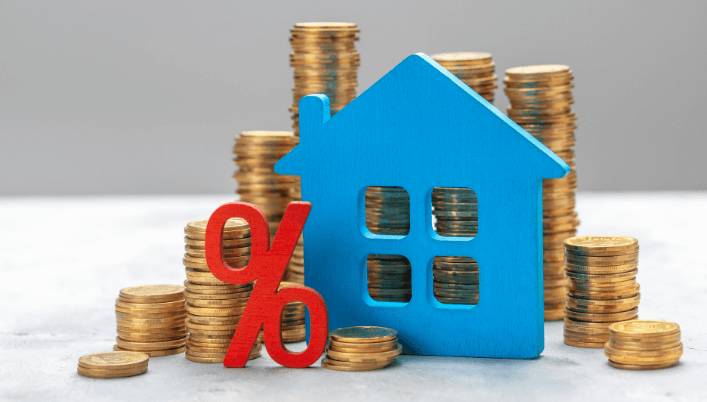
When it comes to managing your monthly expenses as a homeowner in Singapore, home loan interest is a crucial aspect that should not be overlooked.
In this article, we will explore the different types of home loans available, how to calculate home loan interest, and strategies to reduce your interest payments.
Different Types of Home Loans in Singapore
There are several types of home loans offered by mortgage lenders in Singapore.
It is important to understand the differences between these options to choose the most suitable one for your needs.
Some common types of home loans include:
- Fixed-Rate Home Loan: This type of loan offers a fixed interest rate for a specific period, giving you stability and predictability in your monthly mortgage payments.
- Floating Rate Home Loan: Also known as a variable rate loan, this type of loan offers an interest rate that fluctuates with the market conditions. It can be lower or higher than the fixed-rate option, depending on the interest rate environment.
- SIBOR-pegged Home Loan: SIBOR stands for Singapore Interbank Offered Rate. This type of loan has an interest rate that is pegged to the SIBOR rate, which is influenced by market conditions. It offers more transparency as the interest rate is readily available in the market.
Calculating Home Loan Interest
To effectively manage your home loan costs, it is crucial to understand how to calculate your home loan interest.
The interest on your home loan is typically calculated based on the outstanding balance of your mortgage and the prevailing interest rate.
To estimate your monthly mortgage payment, you can use online calculators or consult your mortgage lender for a loan estimate.
This will give you a better understanding of your monthly expenses and allow you to plan your budget accordingly.
Reducing Home Loan Interest Payments
Reducing home loan interest payments can help you save money in the long run.
Here are some strategies to consider:
- Refinance your home loan: If there are better interest rate options in the market, refinancing your home loan can help lower your interest payments. However, it is important to consider the associated costs and compare the potential savings before making a decision.
- Make additional payments: By making extra payments towards your principal, you can reduce the outstanding balance and the amount of interest you pay over time. Check with your mortgage lender if there are any restrictions or penalties for additional payments.
- Opt for a shorter loan tenure: Choosing a shorter loan tenure can result in higher monthly payments, but it can significantly reduce the total interest paid over the life of the loan.
Managing home loan interest and costs is essential for maintaining a healthy financial future as a homeowner in Singapore.
By understanding the different types of home loans, calculating your interest payments, and exploring strategies to reduce interest costs, you can effectively manage your monthly expenses and budget for a brighter financial future.
Fire/Home Insurance: Protecting Your Home and Finances in Singapore
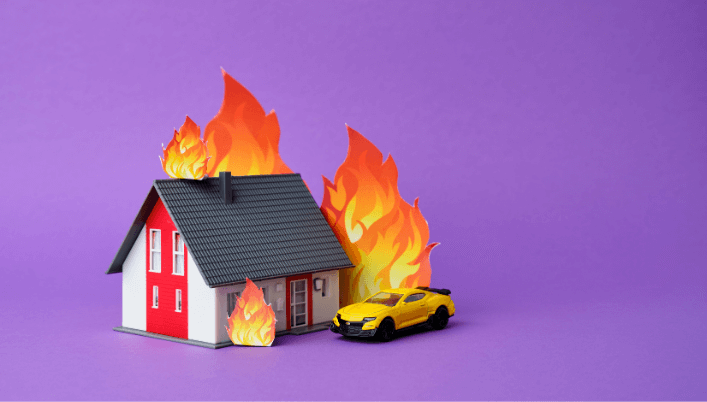
As a homeowner in Singapore, it is crucial to consider the recurring costs associated with homeownership.
One such cost that you should not overlook is fire/home insurance.
In this article, we will explore the different types of fire/home insurance coverage available, factors that affect insurance premiums, and tips for choosing the right insurance policy.
Types of Fire/Home Insurance Coverage
When it comes to fire/home insurance, there are several types of coverage to choose from.
Here are some common options:
- Building Coverage: This type of coverage protects the structure of your home, including the walls, roof, and foundation, against damages caused by fire, lightning, explosions, and other covered perils.
- Contents Coverage: Contents coverage helps protect your personal belongings, such as furniture, electronics, and apparel, against damages caused by fire, theft, or other covered perils.
- Liability Coverage: Liability coverage provides financial protection if someone is injured on your property and files a lawsuit against you. It covers legal fees, medical expenses, and damages awarded to the injured party.
- Additional Living Expenses Coverage: If your home becomes uninhabitable due to a covered event, this coverage will help cover the cost of temporary accommodation and daily living expenses.
Factors That Affect Fire/Home Insurance Premiums
Several factors can influence the cost of your fire/home insurance premiums.
Here are the main factors to consider:
- Location: The location of your home plays a significant role in determining insurance premiums. Homes located in areas prone to natural disasters, such as flooding or earthquakes, may have higher premiums.
- Building Age and Condition: Older homes or homes in poor condition may be more susceptible to damages, resulting in higher insurance premiums.
- Security Measures: Installing smoke detectors, fire extinguishers, and security systems can help lower your insurance premiums by reducing the risk of fire or burglary.
- Claims History: If you have a history of filing insurance claims, especially for fire-related incidents, it may result in higher premiums.
Choosing the Right Fire/Home Insurance Policy
When selecting a fire/home insurance policy, it’s important to consider the following:
- Coverage Needs: Assess the value of your home and belongings to determine the coverage limits you need. Ensure that the policy covers all potential risks you may face.
- Policy Exclusions: Review the policy exclusions to understand what events or damages are not covered. Consider additional coverage if necessary.
- Deductibles: Evaluate the deductible amount, which is the out-of-pocket expense you will have to pay before insurance coverage kicks in. Consider your budget and risk tolerance when choosing a deductible.
- Premium Costs: Obtain quotes from multiple insurance providers to compare premium costs. Remember to consider the coverage and service offered, not just the price.
By choosing the right fire/home insurance policy, you can protect your home and finances from unexpected events.
Carefully assess your coverage needs and consider the factors that affect your premiums to make an informed decision.
Overall, homeowners in Singapore must understand the importance of fire/home insurance in protecting their properties and ensuring financial stability.
By considering the different types of coverage, understanding the factors that affect premiums, and selecting the right policy, homeowners can have peace of mind knowing that their homes and belongings are adequately protected.
Private Property Maintenance Fees: Understanding the Costs of Home Ownership in Singapore
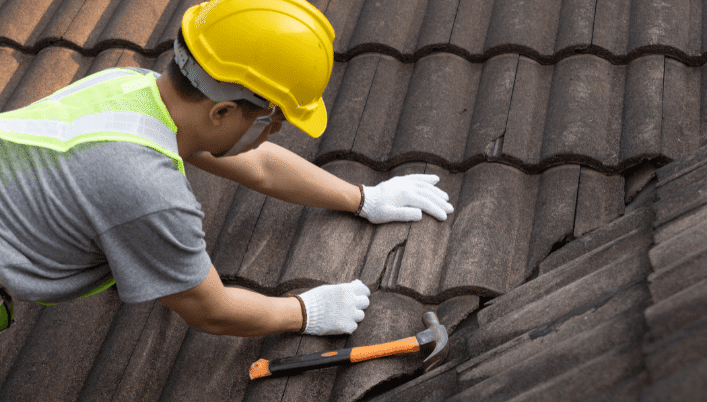
As a homeowner in Singapore, it is important to be aware of the recurring expenses associated with owning a private property.
One significant cost that should not be overlooked is private property maintenance fees.
In this article, we will explore what is included in these fees, how they are calculated, and some strategies for reducing them.
What is Included in Private Property Maintenance Fees?
Private property maintenance fees are monthly charges that homeowners pay to cover the costs of maintaining and managing their residential development.
These fees typically include:
- Common Area Maintenance: The upkeep and maintenance of shared facilities such as swimming pools, gyms, gardens, and playgrounds.
- Security: The cost of security personnel and surveillance systems to ensure the safety and security of the development.
- Cleaning and Pest Control: Regular cleaning services and pest control measures for common areas.
- Insurance: Insurance coverage for the common areas and shared facilities.
- Administration and Management: Administrative expenses for managing the property, including the salaries of property managers and staff.
By pooling resources through maintenance fees, homeowners can collectively ensure that the property is well-maintained and the shared facilities are kept in optimal condition.
How are Private Property Maintenance Fees Calculated?
The calculation of private property maintenance fees can vary depending on factors such as the size of the development, the number of units, and the facilities provided.
Typically, the fees are divided equally among all homeowners or based on the size or value of individual units.
To calculate the fees, the management corporation or property management company assesses the estimated costs for maintenance, repairs, replacements, and other ongoing expenses.
These projections are then divided among the homeowners to determine their share of the fees.
It is important to note that maintenance fees can increase over time if the costs of maintenance and management go up or if additional facilities or services are introduced.
Reducing Private Property Maintenance Fees
While private property maintenance fees are necessary for the upkeep of the development, there are ways to potentially reduce these costs:
- Active Participation: Get involved in the management of the property by joining the residents’ committee or management corporation. By actively participating, you can ensure transparency in financial decisions and potentially find cost-saving opportunities.
- Efficient Energy Use: Encourage energy-efficient practices within the development, such as installing energy-saving light bulbs, implementing proper insulation, and promoting responsible water usage. These measures can help lower utility expenses and subsequently reduce maintenance fees.
- Comparison Shopping: Regularly review and compare the prices and services of contractors and service providers involved in the maintenance of the development. By seeking competitive bids, you may be able to negotiate better deals or find cost-effective solutions without compromising on quality.
- Preventive Maintenance: Regularly maintain and repair common equipment and facilities to minimize the risk of large-scale damage or breakdowns. By addressing issues promptly, you can reduce the overall maintenance costs in the long run.
In conclusion, understanding private property maintenance fees is crucial for homeowners in Singapore.
By knowing what is included in these fees, how they are calculated, and strategies for reducing them, homeowners can make informed decisions to manage their recurring expenses effectively and ensure the long-term sustainability of their private properties.
HDB Service and Conservancy Charges (S&CC): Recurring Expenses and Monthly Expenses
When it comes to owning an HDB flat in Singapore, there are recurring home cost expenses that homeowners should be aware of.
One significant cost is the HDB Service and Conservancy Charges (S&CC).
In this article, we will delve into what is included in these charges, how they are calculated, and some strategies for reducing them.
What is Included in HDB S&CC?
HDB Service and Conservancy Charges (S&CC) are monthly charges that HDB homeowners pay.
These charges cover the costs of maintaining and managing the common areas and facilities within HDB estates.
The expenses typically include:
- Cleaning and maintenance of common areas such as corridors, lifts, void decks, and playgrounds.
- Upkeep of shared facilities like car parks, gardens, and fitness corners.
- Provision of essential services such as lighting, water supply, and refuse disposal.
- Security services to ensure the safety and well-being of the residents.
- Administration and management expenses for the HDB estate.
These charges are crucial in ensuring that HDB estates are clean, well-maintained, and safe for all residents.
How are HDB S&CC Calculated?
The calculation of HDB S&CC can vary depending on several factors.
These factors include the flat type, the floor area, and the estate’s maintenance needs.
Generally, the charges are determined based on a formula that takes into account the estimated costs for maintaining and managing the estate.
The formula considers factors such as lift installations, the number of refuse chutes, the estate’s age, and the essential services provided.
The charges are then divided among the residents based on their share of the overall floor area.
It is important to note that the HDB S&CC charges may be revised periodically to account for changes in operating costs and improvements to the estate’s facilities.
Reducing HDB S&CC
While HDB S&CC charges are necessary for the upkeep and maintenance of HDB estates, there are steps that homeowners can take to potentially reduce these costs:
- Energy-efficient practices: Implement energy-saving measures such as using energy-efficient appliances, installing LED lights, and practicing responsible water usage. These measures can help lower utility expenses, which can indirectly affect the S&CC charges.
- Active resident involvement: Participate in the Residents’ Committee or Management Corporation to have a say in financial decisions and find cost-saving opportunities. By working together with other residents, you can explore ways to reduce expenses without compromising on the quality of the estate.
- Maintain your property: Regularly maintain and repair your HDB flat to prevent major damage or breakdowns. By addressing issues promptly, you can minimize the overall maintenance costs and potentially reduce the S&CC charges.
- Compare prices: Regularly review and compare the prices of contractors and service providers for maintenance works. By seeking competitive bids, you may be able to negotiate better deals and find cost-effective solutions.
In conclusion, understanding the HDB Service and Conservancy Charges (S&CC) is essential for homeowners in Singapore.
Conclusion
After delving into the various recurring home costs in Singapore, it is clear that home ownership comes with its fair share of financial responsibilities.
From property taxes to maintenance expenses, there are several ongoing costs that homeowners need to budget for.
The average monthly cost of owning a home in Singapore can vary depending on factors such as location, property type, and size.
It is crucial for prospective homeowners to thoroughly evaluate their financial situation and determine how much they can afford to spend on these expenses.
In addition to the average cost of owning a home, there are other expenses to consider.
Insurance costs, including home insurance and flood insurance, are essential for protecting your investment.
Private mortgage insurance may also be required if you are putting down less than 20% as a down payment.
Furthermore, recurring expenses such as property taxes, condo fees, and HOA fees can impact your monthly or quarterly budget.
These expenses can vary depending on the type of property you own and the services provided by the condominium or homeowners association.
Home maintenance is another significant aspect of recurring costs.
Regular upkeep, repairs, and HVAC system maintenance are essential for preserving the condition and value of your home.
These costs can vary depending on the age and condition of your property.
It is important to note that as a homeowner, you may have certain tax benefits available to you.
Some expenses, such as property taxes and mortgage interest, may be tax-deductible.
It is advisable to consult with a tax professional to fully understand the tax implications and potential benefits of homeownership.
For those who are still considering becoming a homeowner, it is crucial to conduct a thorough home inspection before making a purchase.
This will help identify any potential issues or additional costs that may arise in the future.
On the other hand, if you are a renter, you have the advantage of not bearing the burden of property ownership costs.
However, it is worth noting that rent payments can increase over time, and you may be subject to annual rent increases.
In conclusion, understanding the recurring home costs in Singapore is vital for both current and prospective homeowners.
By estimating these expenses and incorporating them into your budget, you can make informed decisions about your homeownership journey.
Whether you choose to pay property taxes monthly or quarterly or opt for recurring services, being aware of these expenses is key to maintaining your financial stability and ensuring a successful homeownership experience.
Frequently Asked Questions
What are recurring home costs?
Recurring home costs are the ongoing expenses that homeowners are responsible for paying regularly.
These costs can include mortgage payments, homeowners insurance, property taxes, utilities, HOA fees (if applicable), and maintenance expenses.
How much does it cost to own a home?
The cost of owning a home can vary depending on various factors such as location, size of the property, and the specific expenses involved.
On average, homeowners can expect to spend around 1-3% of the home’s value on yearly maintenance and repairs, in addition to the monthly mortgage payment.
What is included in the monthly recurring costs of owning a home?
The monthly costs of owning a home typically include the mortgage payment, homeowners insurance premium, property taxes, utilities (electricity, water, gas, etc.
), and any HOA fees.
These expenses are recurrent and should be factored into your monthly budget.
What are closing costs?
Closing costs are the fees associated with finalizing the purchase of a property.
These costs can include loan origination fees, appraisal fees, title insurance, attorney fees, and other related expenses.
Closing costs are typically paid at the time of closing and can vary depending on the purchase price and location of the property.
Do I need homeowners insurance?
Yes, homeowners insurance is essential for protecting your investment.
It covers the cost of repairing or rebuilding your home in case of damage from fire, natural disasters, theft, and other covered perils.
Additionally, it provides liability coverage in case someone is injured on your property.
Are there any hidden costs of owning a home?
Yes, there can be hidden costs of owning a home that is often overlooked.
These can include unexpected repairs, maintenance expenses, increased utility bills, and additional costs for things like lawn care, pest control, and home security.
It’s important to budget for these potential expenses to avoid financial surprises.
What are HOA fees?
HOA (Homeowners Association) fees are recurring payments made by homeowners in a community or condominium complex.
These fees cover the cost of maintaining common areas, amenities, and shared utilities.
HOA fees can vary depending on the community and the services provided.
Do I need mortgage insurance?
Mortgage insurance is typically required if you are putting in less than a 20% down payment when buying a house.
It protects the lender in case the borrower defaults on the mortgage.
Mortgage insurance can add to your monthly expenses until you have built enough equity in your home.
What are the ongoing maintenance expenses of owning a home?
Ongoing maintenance expenses can include routine repairs, HVAC servicing, landscaping and lawn care, pest control, and general upkeep.
It’s important to budget for these expenses to keep your home in good condition and avoid potential larger repair costs in the future.
How do I budget for recurring home costs?
To budget for recurring home costs, start by determining your monthly income and expenses.
Include categories such as mortgage payments, homeowners insurance, property taxes, utilities, HOA fees, and maintenance expenses.
Make sure to leave room for savings and emergency funds.
It’s also a good idea to review your budget regularly and make adjustments as needed.












